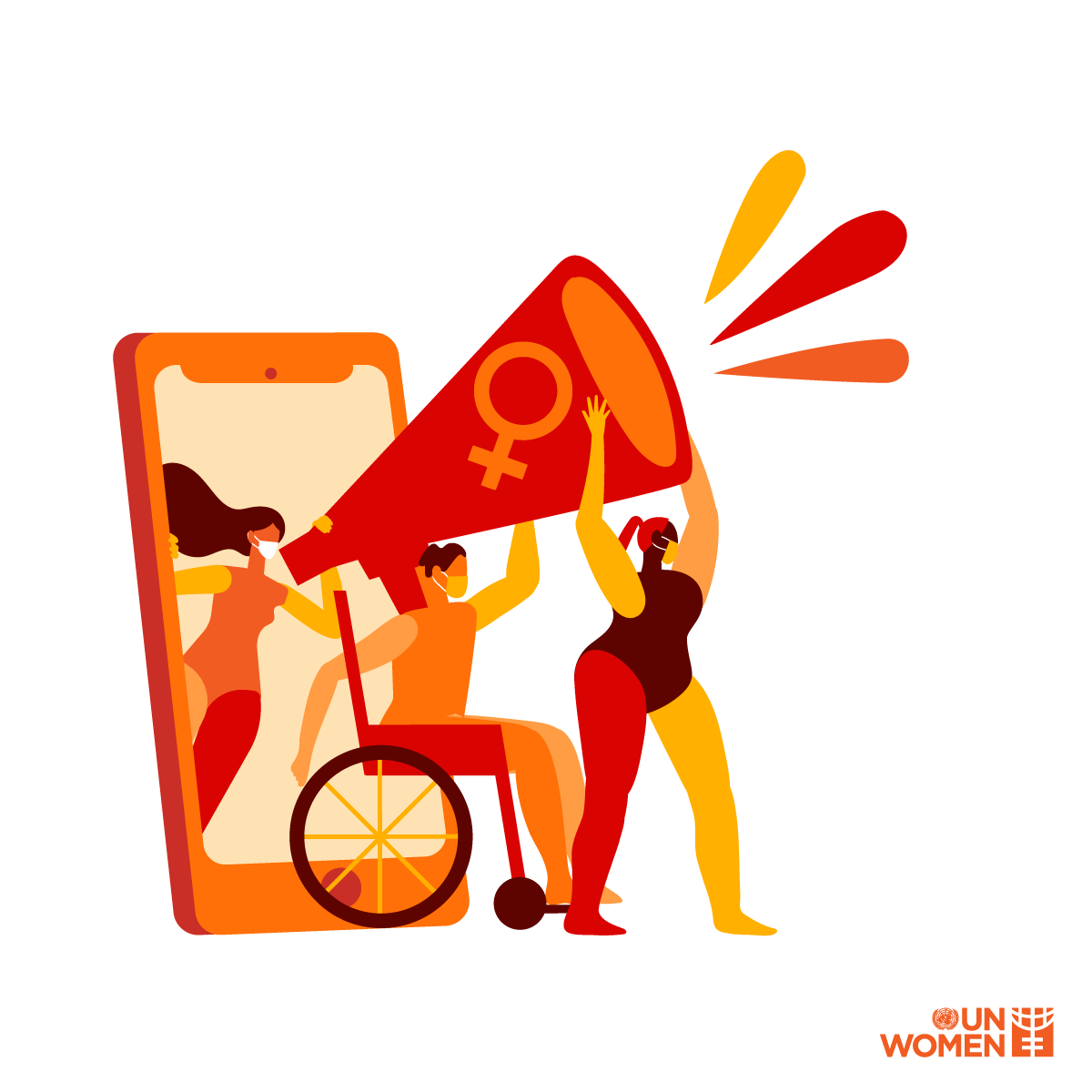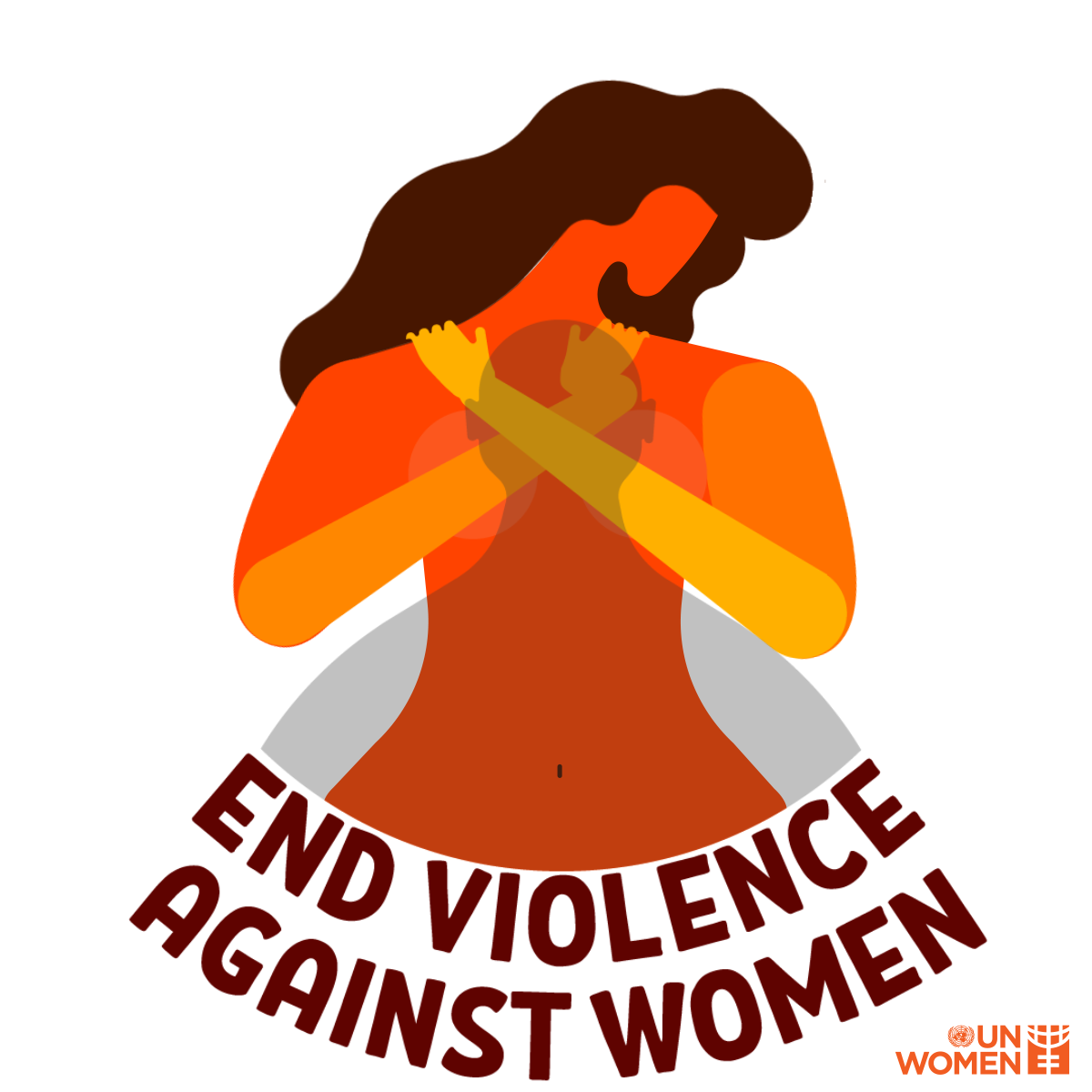Let us know what type of content you'd like to see more of. Fill out our three question survey.
Eliminating Cyber Violence Against Women and Girls
Nov 25, 2020
Today is the United Nations’ International Day for the Elimination of Violence Against Women. Like every year on this day–and any other official “Day” that amplifies the inequalities between women and men–I’m heaving a big sigh… because we’re still here. We still require these Days. We continue to need reminding that women are still fighting for equality all over the world.
These thoughts can get me down, but today, I’m pulling up my positive socks. Observing these Days provides an opportunity to celebrate the progress societies have made in closing gender gaps and can galvanise us to acknowledge the work still left to do. If days like today inspire us to take positive action to shape a better world for women and men, then that is all to the good.

Source: UN Women
Online Abuse and Gender Digital Divide
The internet mirrors and amplifies the social norms of the offline world, as we described in this post from 2017. Just as women and girls are more likely to be at risk of more types of violence than men and boys in the physical world, so too are they in the online world. In our previous blog post, we outlined the effects of this inequality on digital inclusion. Abuse on digital platforms, especially when there are no apparent consequences for the perpetrators, may cause victims to opt out of internet use and all the potential benefits that it affords.
Research released this year highlights that these issues still affect the behaviour of women and girls. Plan International conducted the largest-ever global survey on online violence, which showed that 58 percent of girls surveyed have experienced online harassment. One in five girls (19 percent) have left or significantly reduced their use of a social media platform after being harassed, while just over one in ten (12 percent) have changed the way they express themselves.
All participants in the DAI Center for Digital Acceleration’s recent research in India and Ghana on User Perceptions of Trust and Privacy on the Internet voiced concerns about the offline consequences of online behaviour, but the study found that those perceptions most acutely limit what women do online, potentially exacerbating the online gender gap and leaving female internet users even further behind. The Web Foundation’s Women’s Rights Online project showed that women are more concerned about their privacy online compared to men, across a range of personal data categories, including private messages, home addresses and healthcare information. The GSMA Mobile Gender Gap Report 2020 found that safety and security concerns had increased in importance as a barrier to mobile internet usage between 2018-2019. These studies all demonstrate the immediate need to address these issues now, or risk further exacerbating the gender digital divide.
Finding New Solutions
This October, as part of Cyber Security Awareness month, DAI’s Center for Digital Acceleration launched its flagship Cybersecurity Frontier Insights research into user perceptions of trust and privacy on the internet. In a panel discussion, experts touched on the particular needs of women in this area and emphasized that without real-world consequences for those abusing women online, women may choose to remain offline.

“The gender digital divide is one of the really critical issues that we need to be looking at here when we’re thinking about trust and digital inclusion,” said Meghan Lefeber, Senior Economic and Private Capital Advisor at USAID. “Gender-based violence and cyber harassment online is a huge issue that will either keep women offline or will inhibit women from feeling comfortable using digital tools. We really have to tackle these issues.”

“If we are going to address the issues of user trust, particularly for women, we need to tackle the perceptions of the authorities; the male gatekeepers in the communities we’re working in,” said Eleanor Sarpong, Deputy Director and Policy Lead at the Alliance for Affordable Internet (A4AI). “We need champions–male and female–for women’s connectivity, who can help make misogynistic behaviour towards women and girls socially unacceptable. But of course, such behaviour also needs to be legally and practically unacceptable. If somebody is being trolled online and seeks redress in the offline space, they should be taken seriously and they should be able to receive it. The abusive act shouldn’t be seen as something that ‘just’ happened online–that it is somehow less serious than if it happened in person–which is so often the case. It will require some level of training of and resourcing to various legal institutions and court systems to support people who feel that they’re victims of online abuse.”

Derek Laryea, Head of Research and Communications at the Ghana Chamber of Telecommunications, added that “joint or enhanced collaboration is needed in a market to drive change, especially when trying to address the demand-side challenges users face.”
Meghan Lefeber agreed: “We need both a top-down and bottom-up approach: it needs to examine the policies and regulations that are in place and consider how we can ensure that people are held accountable for gender-based violence online. This effort should be complemented by a community approach to tackle how we address the very real, practical challenges that women and girls face when using the internet and how we change the culture around that in communities. If we don’t address gender-based violence and the challenges that women face online, the digital gender gap is only going to become a bigger obstacle down the road.”

Source: UN Women
Eliminating Violence Against Women In-Person and Online
Today marks the start of the UN’s 16 Days of Activism, in which member states are called upon to:
-
Fund essential services to prevent gender-based violence and women’s organizations that are at the forefront;
-
Respond to the needs of survivors, including during the global pandemic;
-
Prevent gender-based violence from happening in the first place by challenging cultural and social norms, creating mobilization campaigns, and implementing a zero-tolerance policy; and
-
Collect data to improve services, programmes, and policies.
These efforts are all important, but leave me asking whether such activities will acknowledge and address the online abuse of women as well as that which happens offline. Will they include better systems of redress for victims of online harassment and violence? The journey from having a policy that says people will be prosecuted for trolling online, to the community actually seeing people being prosecuted for trolling online, is a leap that must take place in many markets around the world.
As our offline and online worlds become more connected, without addressing harassment in both, we not only expose women to risk of more harm, but also restrict them from the very positive benefits that digital inclusion can bring in all areas of their lives. Beyond this Day and the following 16, if we want to close–rather than widen–the gender digital divide, ending cyber violence against women and girls must remain high up on the development community’s priority list.